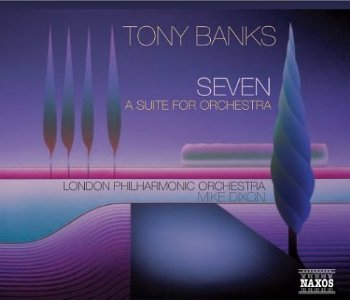
| Artist: | Tony Banks |
| Title: | Seven (A Suite for Orchestra) |
| Released: | 2004.04.20 |
| Label: | Naxos |
| Time: | 57:39 |
| Producer(s): | Nick Davis, Tony Banks |
| Appears with: | Genesis, Peter Gabriel, Steve Hackett, Phil Collins, Mike Rutherford, Ray Wilson |
| Category: | Classical |
| Rating: | ***....... (3/10) |
| Media type: | CD |
| Purchase date: | 2004.05.06 |
| Price in €: | 6,99 |
| Web address: | www.genesis-music.com |